Category: news. Page 5
Online color apps at hclwizard.org

news
The hclwizard.org web page has been relaunched, hosting three online color apps based on the HCL (Hue-Chroma-Luminance) color model: a palette constructor, a color vision deficiency emulator, and a color picker. Read more ›
Spatial lag model trees
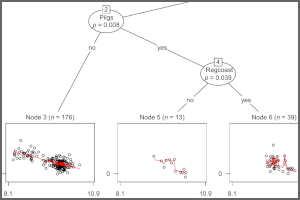
news
Economic growth models are recursively partitioned to assess heterogeneity in growth and convergence across EU regions while adjusting for spatial dependencies. Accompanied by R package lagsarlmtree, combining partykit::mob and spdep::lagsarlm. Read more ›
colorspace: New tools for colors and palettes

news
A major update (version 1.4.0) of the R package colorspace has been released to CRAN, enhancing many of the package's capabilities, e.g., more refined palettes, named palettes, ggplot2 color scales, visualizations for assessing palettes, shiny and Tcl/Tk apps, color vision deficiency emulation, and much more. Read more ›
Minimum CRPS vs. maximum likelihood
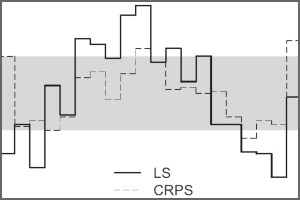
news
In a new paper in Monthly Weather Review, minimum CRPS and maximum likelihood estimation are compared for fitting heteroscedastic (or nonhomogenous) regression models under different response distributions. Minimum CRPS is more robust to distributional misspecification while maximum likelihood is slightly more efficient under correct specification. An R implementation is available in the crch package. Read more ›
Partially additive (generalized) linear model trees
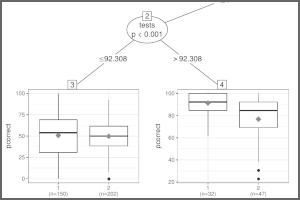
news
The PALM tree algorithm for partially additive (generalized) linear model trees is introduced along with the R package palmtree. One potential application is modeling of treatment-subgroup interactions while adjusting for global additive effects. Read more ›
Thunderstorm forecasting with GAMs
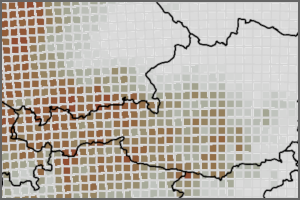
news
Boosted binary generalized additive models (GAMs) with stability selection and corresponding MCMC-based credibility intervals are discussed in a new MWR paper as a probabilistic forecasting method for the occurrence of thunderstorms. Read more ›
MPT trees published in BRM
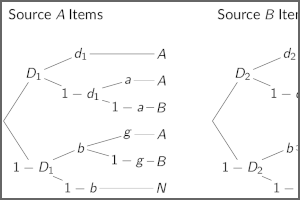
news
Multinomial processing trees are recursively partitioned to capture heterogeneity in latent cognitive processing steps. Accompanied by the R function mpttree in the psychotree package, combining partykit::mob and psychotools::mpt. Read more ›
Clustered covariances in sandwich 2.5-0
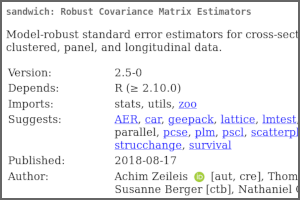
news
Version 2.5-0 of the R package 'sandwich' is available from CRAN now with enhanced object-oriented clustered covariances (for lm, glm, survreg, polr, hurdle, zeroinfl, betareg, ...). The software and corresponding vignette have been improved considerably based on helpful and constructive reviewer feedback as well as various bug reports. Read more ›
Evaluation of the 2018 FIFA World Cup forecast
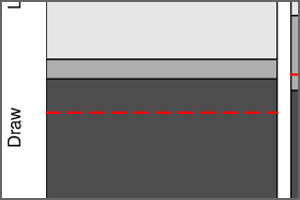
news
A look back the 2018 FIFA World Cup in Russia to check whether our tournament forecast based on the bookmaker consensus model was any good... Read more ›
Sankey diagram for the 2018 FIFA World Cup forecast
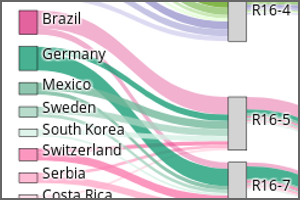
news
The probabilistic forecast from the bookmaker consensus model for the 2018 FIFA World Cup is visualized in an interactive Sankey diagram, highlighting the teams' most likely progress through the tournament. Read more ›